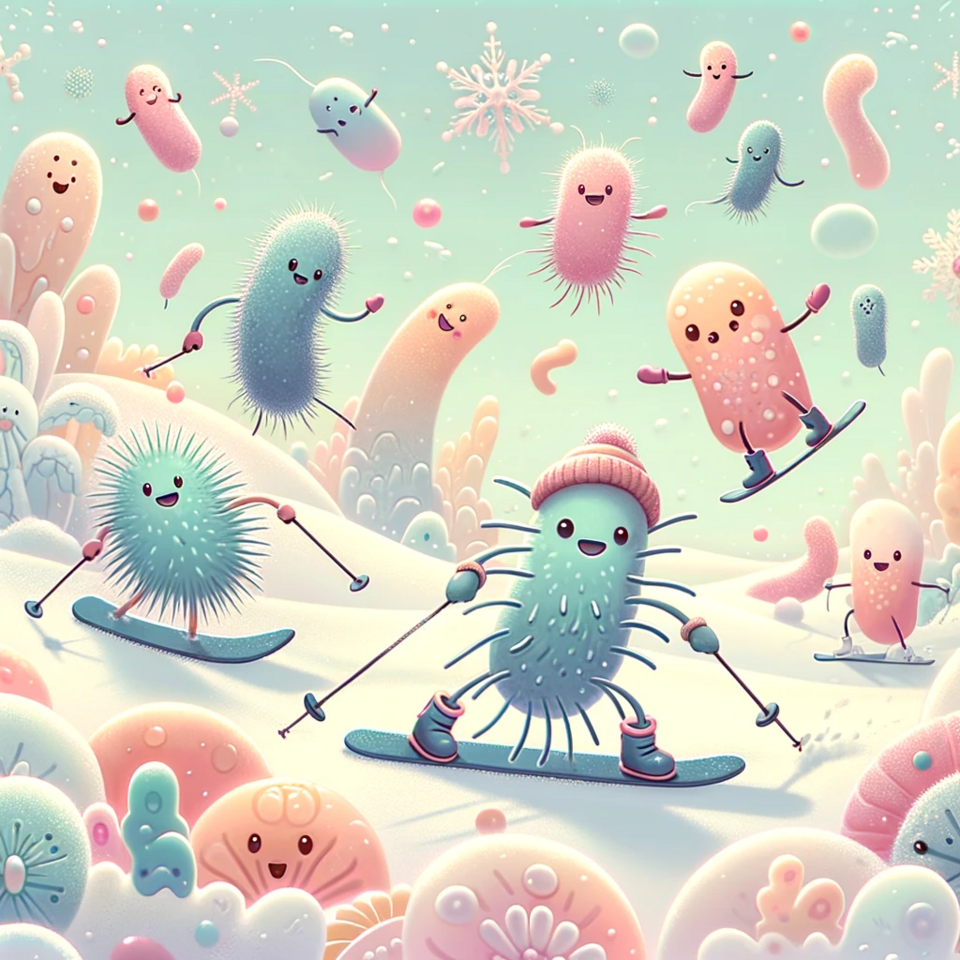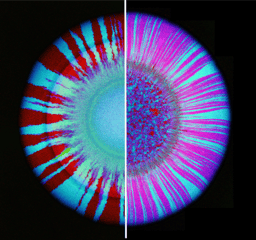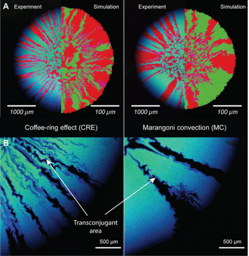Discovering Interesting and Potential Scientific Mrobial Topics Around Your Life
Published in Microbiology


Laika Johnson, Galgo Español (Canis familiaris). Penicillium sp. Laika was isolated from her paw.
Many people regard this incident as a stroke of luck, but upon a deep reflection, it's clear it was facilitated by several essential conditions. Here are some suggestions to help you discover potential scientific projects in your daily life, which could significantly benefit your research and career.
Occasionally shift your primary focus
Researchers often pour all their energy into one or two ongoing projects, which is understandable. However, it's crucial not to completely shut off your active brain. Sometimes, you might want to pause and observe the everyday occurrences around you, which you've become so accustomed to that you nearly ignore their presence. These are often the sources of inspiration. For example, while using a microscope, I always noticed evaporation-induced hydrodynamics interfering with the positioning of cells, typically countered by sealing to prevent disturbance. But why not consider the impact of such micro-hydrodynamics on environmental microbes? Indeed, another research inspiration of mine originated from this observation. Curiosity is at the heart of scientific discovery. As with the Penicillium Laika strain we discovered from Laika's paw, unexpected discoveries outside of routine experiments often lead to unexpected results. Stay curious and open to the world around you, and even the most obscure phenomena may hide the secrets of scientific breakthroughs.
The work atmosphere in Dr. David R. Johnson's lab is very relaxed because he believes happiness is a prerequisite for scientific research. Only in a relaxed environment can creativity flourish. I seldom wrote down experimental plans seriously; they often changed due to shifting interests. Dr. Johnson gave his team members ample freedom, encouraging any research exploration. We often discover new scientific questions in life, which piques our curiosity. Driven by this motivation, our research becomes more efficient. A perpetually high-pressure and tense state can be suffocating, preventing you from being open to new things. For instance, if just one project overwhelms you, you'll never start a second. This mindset can cause you to overlook inspiration around you, even if you feel excited momentarily, the enthusiasm may not last. Keeping a relaxed mindset is essential for welcoming inspiration, allowing for a more inclusive approach to new ideas, and marking a good beginning once an idea is accepted.
I was fortunate. If it weren't for Dave's immense support and encouragement, I would never have been able to pursue research beyond the planned projects. Supervisor's attitude is pivotal in determining whether such research can be realized. Therefore, communicate with your supervisors to gain their support. Not all supervisors are tolerant; their guidance may vary, and some may outright dismiss your ideas based on their experiences. Don't be discouraged!!! Even if you don't start these additional projects immediately, maintain your creativity! Any interesting idea can be noted down in a notebook for "Brilliant Ideas," possibly to be realized in the future.
Combining inspiration with your ongoing research is the most efficient way to maximize benefits. Random attempts without a clear purpose often yield little gain. It's challenging to manage several completely different projects simultaneously, but it's possible to derive branches from one direction. This is also beneficial for your career path. When I took the fungus from Dave, my first attempt was to integrate it into the existing experimental system, aiming for further breakthroughs based on a foundation of existing work. Creative thinking is vital when it comes to unexpected discoveries. Ask yourself, "What could this be used for? What are the potential applications?" Combining everyday observations with your field of study can open up new avenues of research. Creative thinking can help you see connections and opportunities that others don't.
Congratulations on deciding to try, as it brings you closer to success. Most ideas may seem impractical, but why not give them a shot? You have nothing to lose but stand a great chance of making new breakthroughs, which is indeed a high-return investment! The essence of trying lies in knowing it might not succeed but still looking forward to it. If you fail, you'll smile; if you succeed, you'll dance with joy! Satisfy your curiosity, it makes your research much more interesting. Don’t be afraid of failure! Being afraid of having our egos damaged prevents creativity. Embrace all the attempts, whether they lead to success or provide valuable lessons.
Share your stories with others
When I decided to experiment with the fungus from Laika's paw, I shared this interesting idea with a postdoc Dr. Josep Ramoneda. He was very supportive and provided significant motivation, naturally joining the project and offering substantial help. So, when you come up with some interesting inspirations, share them with those around you, they could be your potential collaborators. Sharing your stories and ideas, just like the experiment with the fungus from Laika's paw, opens doors to collaboration and innovation that you might not have considered possible. When you vocalize your thoughts, you not only receive feedback but also tap into the collective wisdom and resources of those around you. In addition to finding collaborators, sharing your journey can inspire others to pursue their curiosities. Remember, the journey of innovation is not a solitary one. It thrives on diversity, collaboration, and shared vision. By opening up about your ideas and experiences, you invite others to join you on this exciting journey. So, next time you find yourself hesitant to share an unconventional idea, remember the fungus experiment. It's a reminder of what's possible when curiosity is met with collaboration.
Finally, it's true that not all research directions will have the opportunity to draw inspiration from the immediate surroundings. However, I believe that intriguing research topics can be found in every corner around us, at least for microbiologists. Currently, I am conducting research on bacteriophages, and you wouldn't believe it, but after months of searching in the soil to no avail, I found the bacteriophage in the drainage pipe of the laboratory sink. Treasures are all around us, let's hurry and discover them!


Please sign in or register for FREE
If you are a registered user on Research Communities by Springer Nature, please sign in